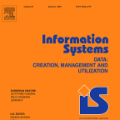The highly specialist terms `quantum computing' and `quantum information', together with the broader term `quantum technologies', now appear regularly in the mainstream media. While this is undoubtedly highly exciting for physicists and investors alike, a key question for society concerns such systems' vulnerabilities -- and in particular, their vulnerability to collective manipulation. Here we present and discuss a new form of vulnerability in such systems, that we have identified based on detailed many-body quantum mechanical calculations. The impact of this new vulnerability is that groups of adversaries can maximally disrupt these systems' global quantum state which will then jeopardize their quantum functionality. It will be almost impossible to detect these attacks since they do not change the Hamiltonian and the purity remains the same; they do not entail any real-time communication between the attackers; and they can last less than a second. We also argue that there can be an implicit amplification of such attacks because of the statistical character of modern non-state actor groups. A countermeasure could be to embed future quantum technologies within redundant classical networks. We purposely structure the discussion in this chapter so that the first sections are self-contained and can be read by non-specialists.
翻译:暂无翻译





